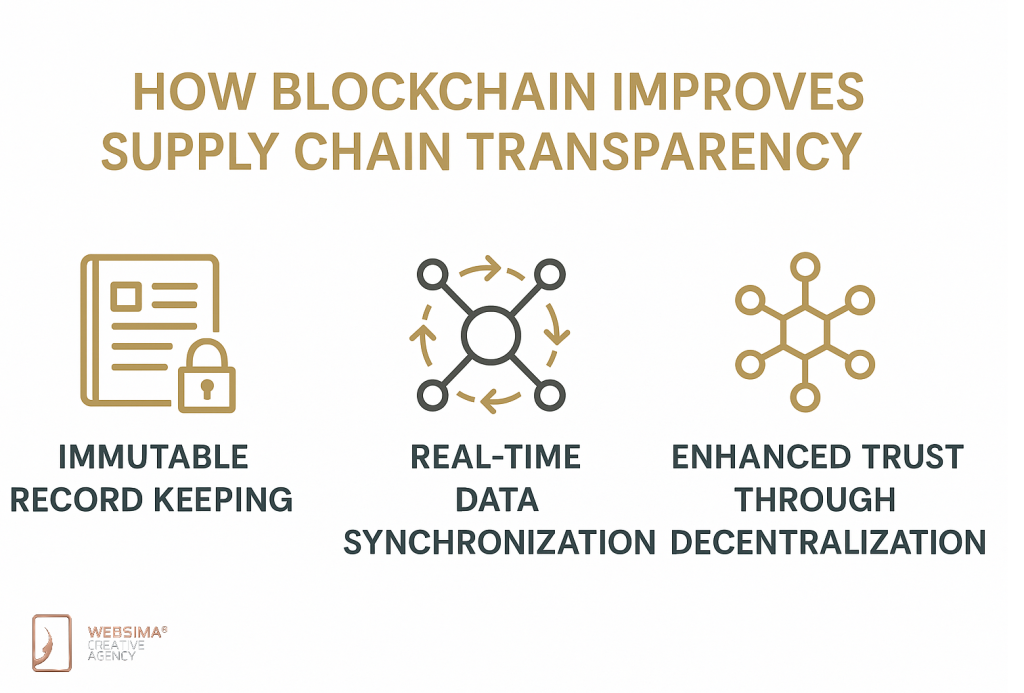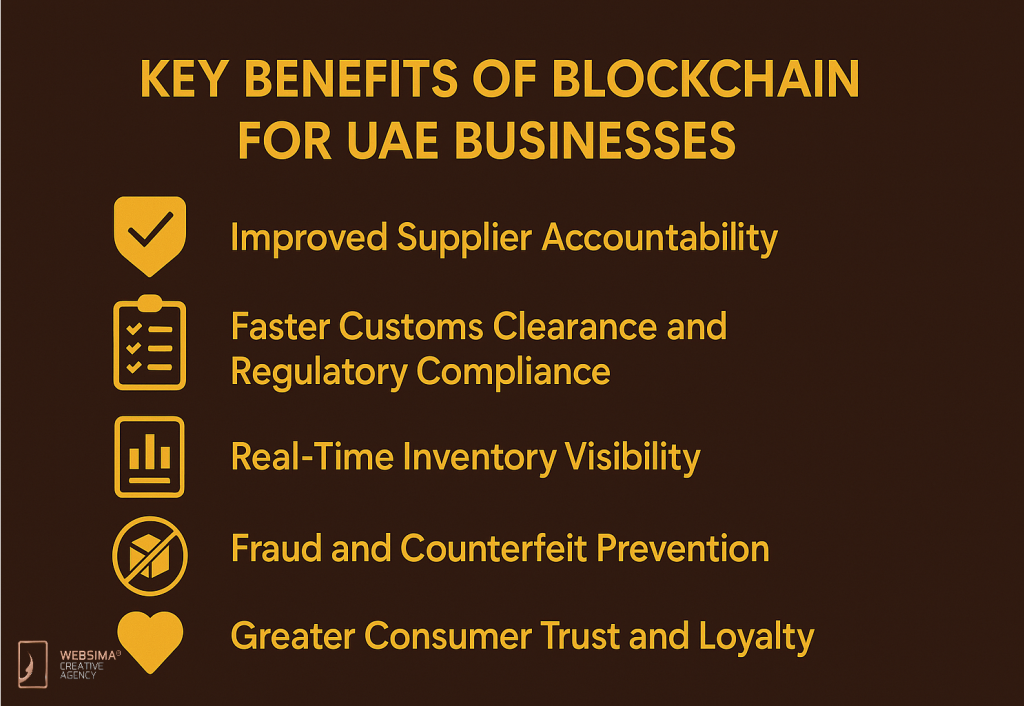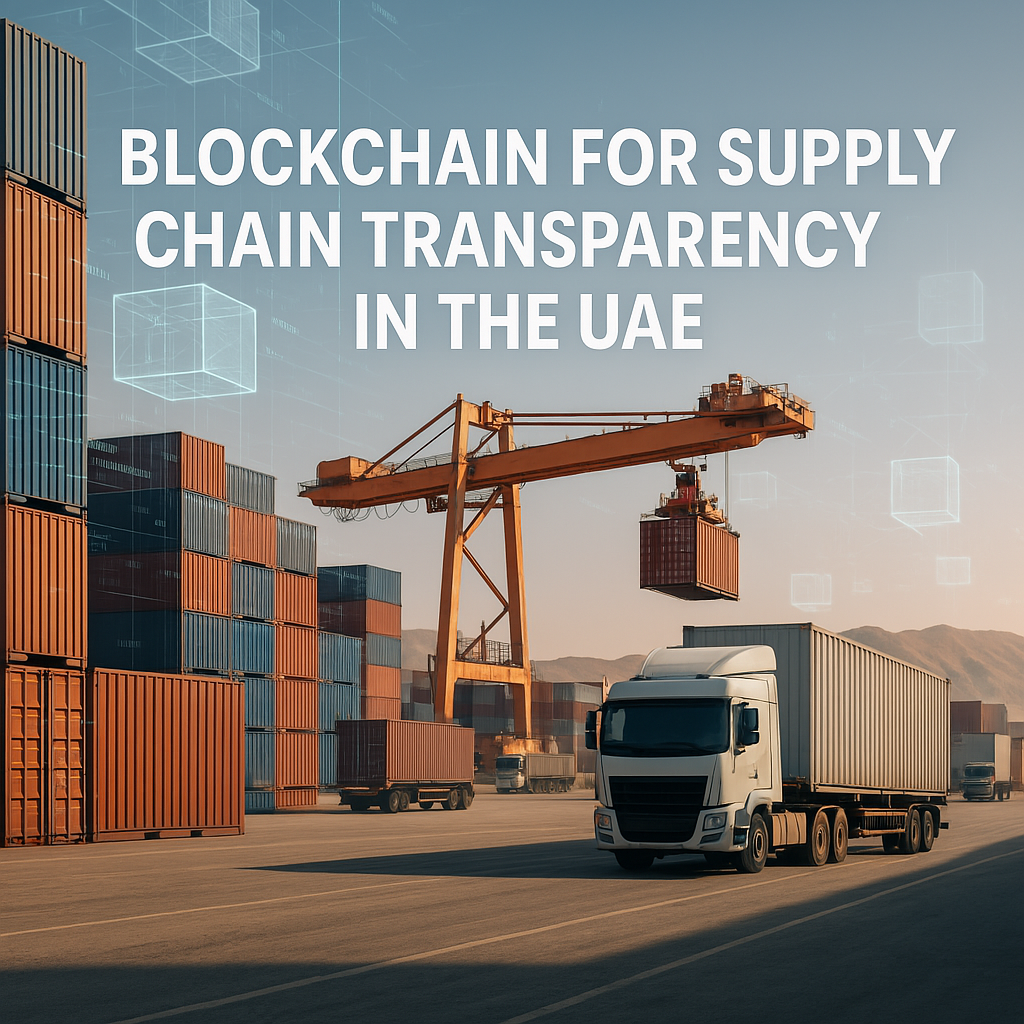Introduction
As the global economy becomes increasingly interconnected, ensuring the integrity and traceability of supply chains has never been more important. From pharmaceuticals and electronics to food and construction materials, supply chain inefficiencies, fraud, and opacity continue to challenge business leaders across industries. In the UAE—a hub for global trade and logistics—there’s a growing focus on leveraging blockchain to bring real-time visibility and trust to complex supply networks. This article explores how Blockchain in UAE supply chain initiatives are transforming risk management, regulatory compliance, and end-to-end product tracking.
Why Supply Chain Transparency Matters More Than Ever
It’s possibly one of the most complex business processes: Supply Chain Management.
Many moving parts (literally), many parties involved and crucial for the whole value chain of a business.
DevvE can help. Our blockchain tracks the movement of goods, transactions and inventory,… pic.twitter.com/11F1ODAKDV
— DevvE (@DevveEcosystem) February 6, 2025
Global Trade Is Becoming More Complex
With globalization expanding supplier networks across continents, organizations now rely on hundreds, if not thousands, of third parties to manufacture and deliver goods. These intricate webs make it difficult to:
- Authenticate the origin of goods
- Monitor real-time movement
- Detect and prevent counterfeits
Supply chain opacity also limits the ability to respond effectively to disruptions—whether caused by pandemics, geopolitical tensions, or environmental incidents.
The Cost of Inaccuracy
According to a McKinsey & Company report, global supply chains are facing increasing volatility, making proactive management and real-time visibility essential for building long-term resilience. The lack of integrated data systems and real-time monitoring leaves businesses vulnerable to disruptions, delayed responses, and rising operational costs.
In a logistics-driven economy like the UAE, this emphasizes the urgency of adopting technologies like blockchain to reduce delays, improve agility, and ensure accurate, synchronized information across all supply chain tiers.
How Blockchain Improves Supply Chain Transparency

Immutable Record Keeping
Blockchain provides a tamper-proof, time-stamped ledger that records every transaction or movement in a supply chain. From raw material sourcing to last-mile delivery, data can be captured at every point and made accessible to all relevant parties.
Real-Time Data Synchronization
With smart contracts, blockchain enables automatic updates across stakeholders without manual input. For example, once a shipment is scanned at a port in Dubai, the blockchain ledger can immediately reflect this across manufacturers, distributors, and retailers.
Enhanced Trust Through Decentralization
Instead of relying on a single central authority, blockchain distributes control across a network of participants. This decentralized approach boosts data authenticity, reduces fraud, and eliminates costly reconciliation errors.
Key Blockchain Supply Chain Use Cases in the UAE
1. Food and Agriculture
In a country that imports over 80% of its food, ensuring product integrity is crucial. Blockchain is being used to trace:
- Origin of produce
- Transport temperatures
- Handling conditions
Companies like Carrefour UAE have adopted blockchain-based food traceability systems to track meat and poultry products—boosting consumer confidence.
2. Pharmaceutical Authenticity
Dubai is using blockchain to improve healthcare service, through the technology unique feature that offers end-to-end traceability for pharmaceutical supply chains, helping prevent the circulation of counterfeit drugs. With smart labels and IoT devices, medicines can be tracked from production facilities to pharmacies, ensuring compliance with Dubai Health Authority (DHA) regulations.
3. Luxury Goods and Electronics
Counterfeit luxury goods cost the UAE economy billions annually. Brands are integrating blockchain-enabled product passports, allowing customers to verify authenticity via QR codes or NFC chips linked to immutable records.
Government Initiatives Supporting Blockchain Supply Chains
UAE Blockchain Strategy 2021
The Emirates Blockchain Strategy 2021 aims to shift 50% of government transactions to blockchain. Also Dubai’s government through Dubai Strategy is aiming to utilize blockchain to improve Dubai’s government services transparency including logistics and supply chain. This includes logistics documentation such as:
- Bills of lading
- Certificates of origin
- Customs clearances
By digitizing these elements, the UAE government is reducing paperwork and minimizing fraud.
Dubai Customs Blockchain Integration
In partnership with Dubai Trade and the Dubai Chamber of Commerce, Dubai Customs is developing blockchain-based systems to handle import/export documentation, cutting processing times and errors.
Ministry of Health and Prevention (MOHAP)
MOHAP launched a blockchain system to record medical supply chains, ensuring transparency in the flow of pharmaceuticals and healthcare products across the emirates.
Technologies Complementing Blockchain in Supply Chain
1. Internet of Things (IoT)
Sensors embedded in containers or pallets feed real-time data into blockchain platforms. This ensures accurate recording of metrics like humidity, temperature, and handling—crucial for perishable goods or fragile items.
2. Artificial Intelligence
AI helps analyze blockchain-logged data for:
- Demand forecasting
- Supply risk modeling
- Automated compliance auditing
Together with blockchain, AI creates a powerful framework for predictive and prescriptive analytics in logistics.
3. Digital Twins
Companies are building digital replicas of supply chains on blockchain platforms, enabling simulations, scenario planning, and what-if analyses—all while maintaining a single source of truth.
Global and Regional Blockchain Supply Chain Solutions
IBM Food Trust
Deployed by Carrefour UAE, this solution offers full traceability of food products, ensuring farm-to-shelf visibility and consumer engagement.
Read about Carrefour’s initiative
OriginTrail
This open-source platform allows businesses to create verifiable supply chain data using blockchain-agnostic technology. It’s gaining traction in logistics and fashion supply chains across the MENA region.
TradeLens (by Maersk and IBM)
Though retired in 2023, TradeLens influenced several UAE logistics platforms that now use private blockchains to share shipment data securely among port operators, customs authorities, and freight companies.
Key Benefits for UAE Businesses

- ✅ Improved Supplier Accountability
- ✅ Faster Customs Clearance and Regulatory Compliance
- ✅ Real-Time Inventory Visibility
- ✅ Fraud and Counterfeit Prevention
- ✅ Greater Consumer Trust and Loyalty
In a competitive market, blockchain gives companies a strategic edge by turning compliance into a value-added differentiator.
Challenges to Blockchain Adoption in the UAE Supply Chain
1. Integration Complexity
Many legacy systems are incompatible with blockchain. Migrating from centralized ERPs to decentralized platforms requires significant time and capital investment.
2. Stakeholder Alignment
Blockchain works best when multiple players across the supply chain participate. However, misaligned incentives or lack of technical knowledge can hinder ecosystem-wide adoption.
3. Regulatory Evolution
While Dubai leads in blockchain governance, ongoing updates to global standards (ISO, WCO, WTO) require UAE companies to remain agile and adaptive.
What’s Next for Blockchain Supply Chain UAE?
In the coming years, we expect to see:
- Cross-border blockchain consortia involving UAE, Saudi Arabia, and India
- Expansion of smart ports using distributed ledger technology
- Greater use of blockchain for ESG reporting, especially in carbon-neutral shipping
- Tokenization of logistics assets for fractional investment and liquidity
Dubai’s position as a global logistics hub will be further strengthened as blockchain maturity and compliance converge.
Want to Build a Blockchain-Based Supply Chain Platform?
At Websima, we specialize in helping businesses across logistics, manufacturing, food, and healthcare design and deploy blockchain-powered supply chain solutions. From smart contract development to full-stack DLT integration and company formation in the UAE, we offer end-to-end support tailored to your industry.
Reach out to our experts to future-proof your supply chain with blockchain technology.





